Contributing to The ZIO Documentation
The ZIO documentation is provided by a worldwide community, just like the project itself. So if you are reading this page, you can help us to improve the documentation.
Please read the Contributor Guideline before contributing to documentation.
Toolchain
- The documentation is written in Markdown format.
- During the build process of the microsite, we use mdoc to type-check code snippets in Markdown.
- Our site generator is Docusaurus.
Editing with GitHub Editor
We encourage contributors to use GitHub's editor for making minor changes to existing documents.
- On each page, there is a button called Edit this page, by clicking this button, we will be redirected to the GitHub editor.
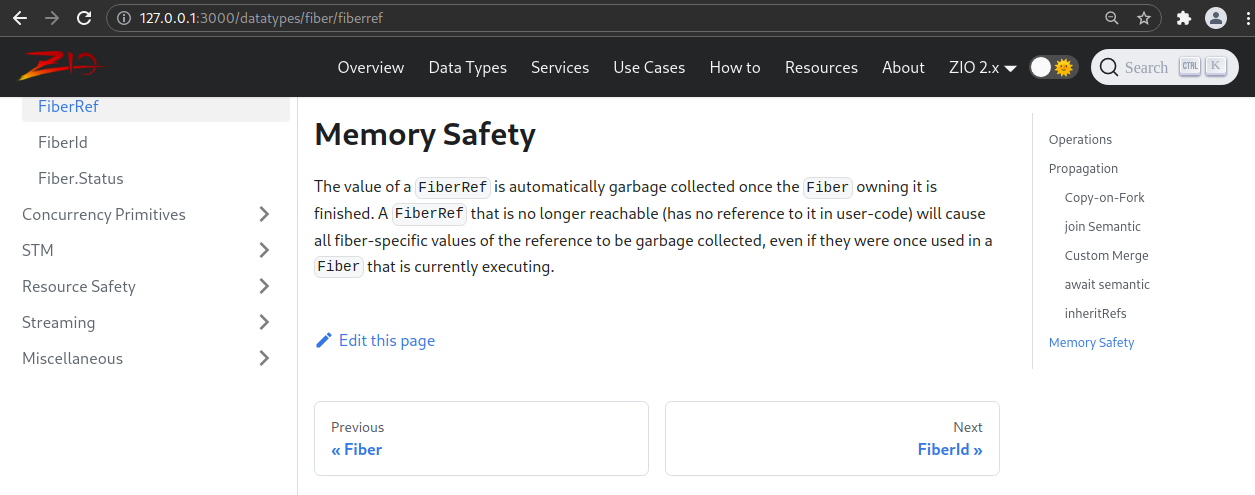
- After editing the page we can check whether our changes have been formatted correctly or not by using the Preview tab.
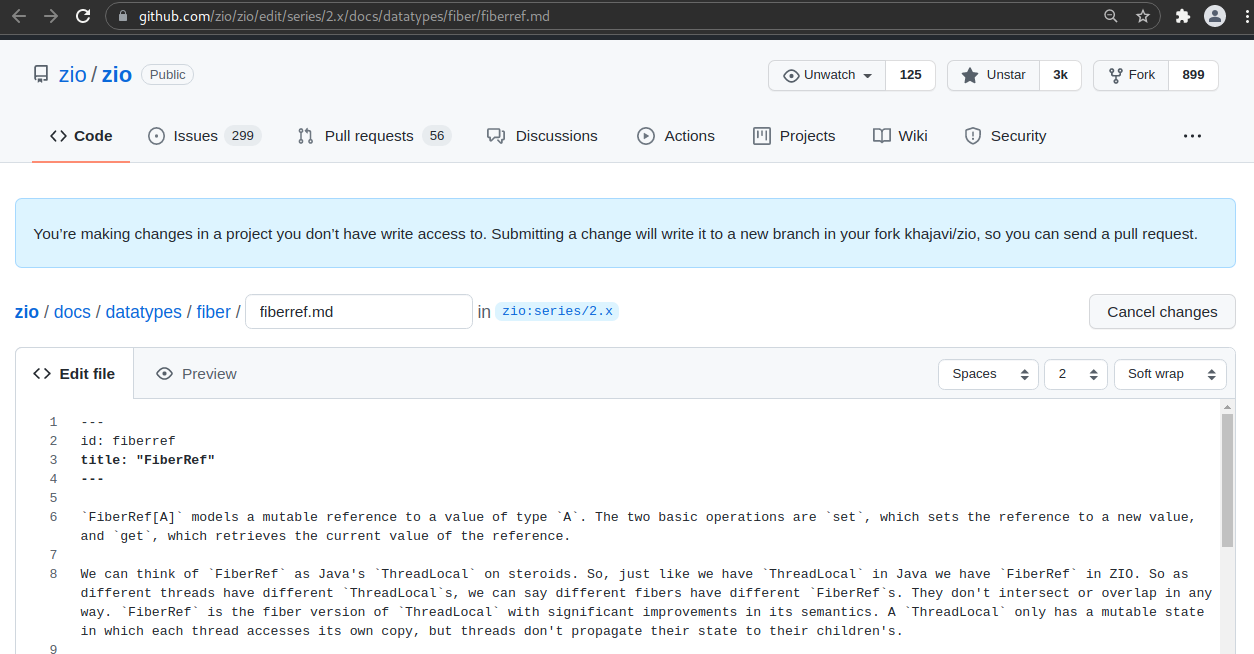
- We can scroll to the bottom of the page and write a title and description of the work, and then propose the changes by clicking on Propose changes.
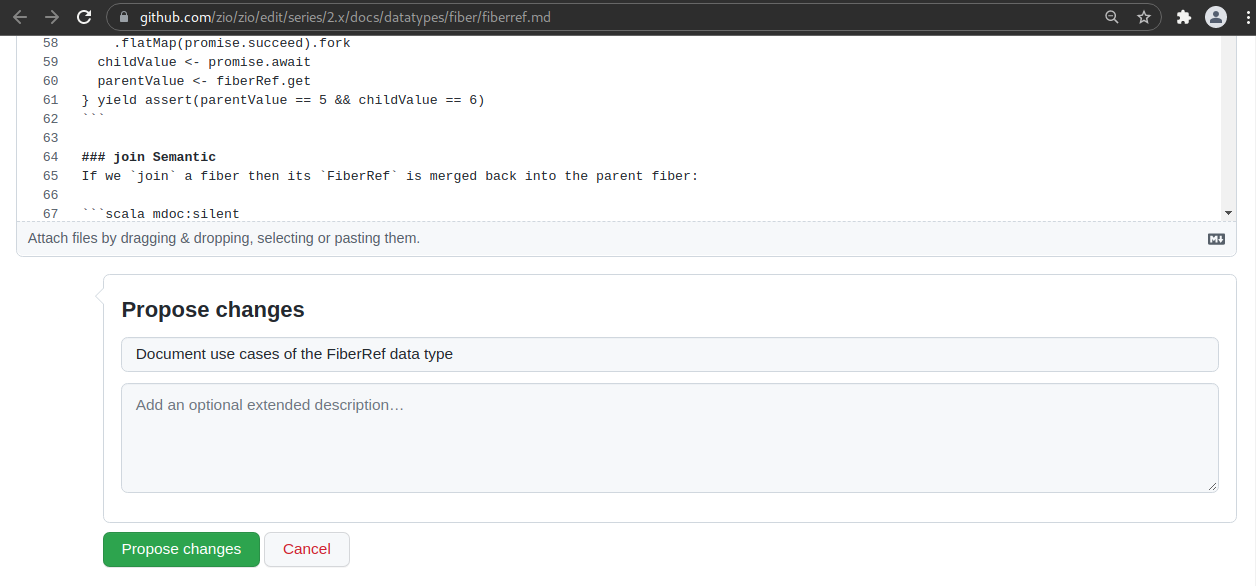
- Our browser will be redirected to a new page titled Comparing changes after clicking the Propose changes button. We can compare our changes proposal and then create a pull request by clicking the Create pull request button.
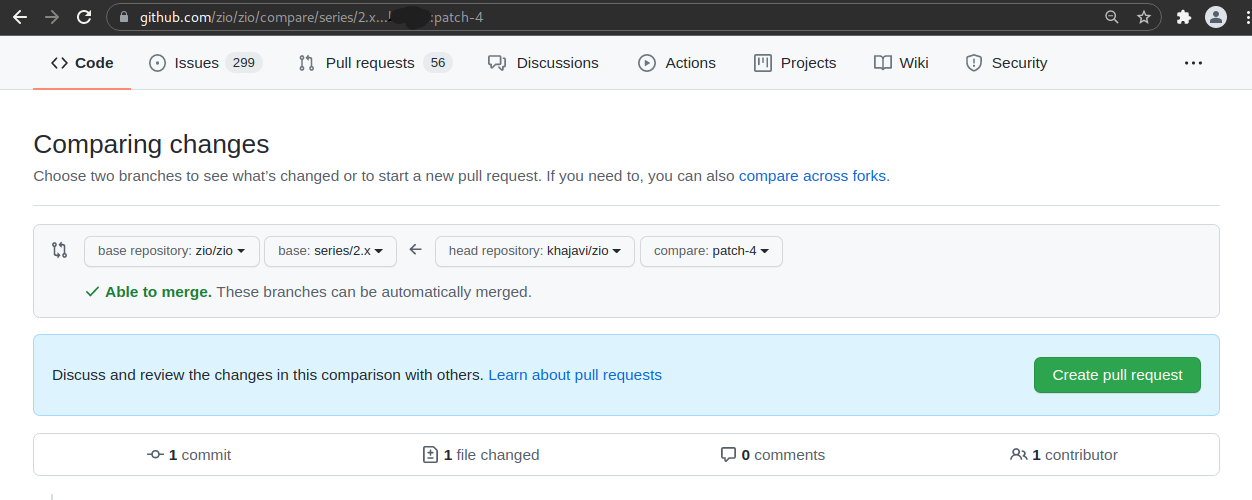
- On the new page, we can edit the title and description of our pull request on the new page and finally click Create pull request.
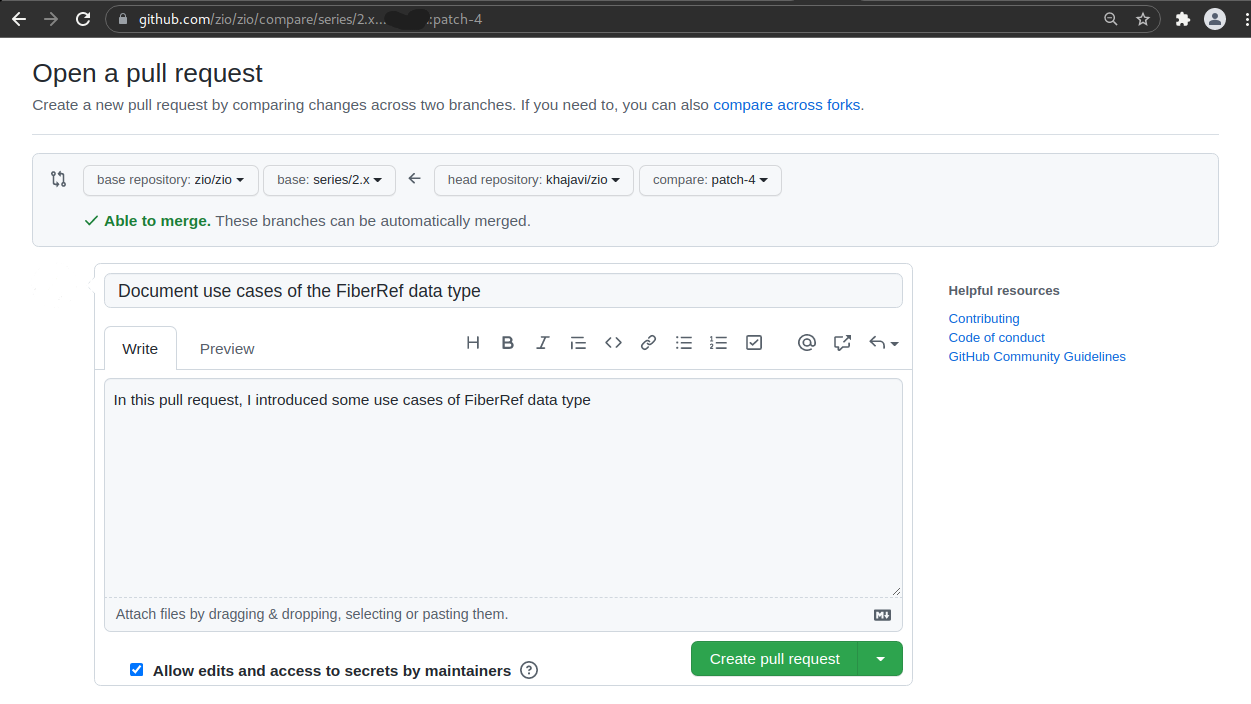
- A pull request has been created. Eventually, our work will be reviewed by the rest of the team.
Editing Documentation Locally
ZIO contributors are encouraged to use this approach for introducing new documentation pages, or when we have lots of improvements on code snippets since we can compile check all changes locally before committing and sending a pull request to the project:
-
First, we need to fork and clone the ZIO project on our machine. Follow the Get The Project instructions to fork the repository and clone your fork.
-
The documentation source code can be found in the
docsdirectory and they are all in Markdown format. Now we can begin improving the existing documentation or adding new documentation. -
To generate documentation site from type-checked markdowns we can use the following command:
sbt docs/mdoc
If one of our snippet codes fails to compile, this command doesn't succeed and will guide us on which line of the documentation caused this error.
It is recommended to run this command with sbt shell with the --watch option. This will start a file watcher and livereload on changes. It's useful when we want to see the intermediate results while we are writing documentation:
sbt
sbt:docs> docs/mdoc --watch
- Finally, by the following command we can serve the microsite locally:
cd website
npm install
npm run start --watch
It will be served on localhost address.
- When we are finished with the documentation, we can commit those changes and create a pull request.
Giving Feedback
Sometimes we see some problem in the documentation, or we have some idea to make better documentation, but we haven't time or knowledge to do that personally. We can discuss those ideas with the community. There are two ways to do this:
- Using Discord (https://discord.gg/2ccFBr4) is a great way to share our thoughts with others, discuss them, and brainstorm big ideas.
- Opening a new issue (https://github.com/zio/zio/issues/new) is appropriate when we have actionable ideas, such as reorganizing a specific page of a documentation, or a problem with the current documentation.